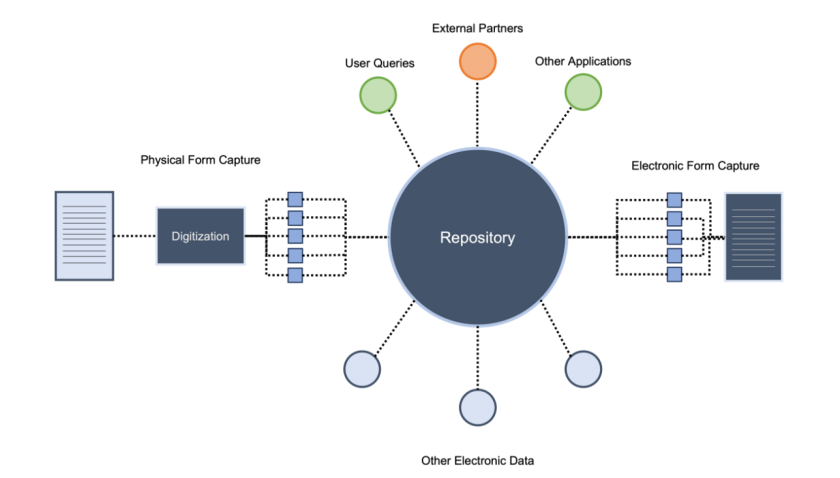Iron Mountain's role in the digital transformation value chain
While many solutions are available from the intelligent document processing (IDP) market, organisations must consider scalability, security, integration with third-party software, and the depth of vendor experience. This research brief will explore Iron Mountain's role in the IDP market. Further, we will explore the company's roots in data management and how this deep experience helps it deliver differentiated solutions.

Exclusive Preview
Situation Analysis
At its essence, digital transformation focuses on decreasing that all-important "time-to-value" metric, which means increased business velocity through efficiency. Depending on the organization, this time-to-value metric will vary. But the common thread across all industries is the ability to conduct business faster, more accurately, and more securely.
Digital transformation starts with how quickly data can be transformed. Industries such as financial services, healthcare, and life sciences generate data in documents and forms. Digital transformation projects speed up the processing, classification, and routing of such unstructured data.
While many solutions are available from the intelligent document processing (IDP) market, organizations must consider scalability, security, integration with third-party software, and the depth of vendor experience.
This research brief will explore Iron Mountain’s role in the IDP market. Further, we will explore the company's roots in data management and how this deep experience helps it deliver differentiated solutions.1
1 https://www.ironmountain.com/resources/customer-success-stories
Digital transformation
When thinking of digital transformation, some of the higher-profile use cases and deployments, including edge computing and IoT, first jump to mind. However, the essence of digital transformation is the automation of business processes, which, for many organizations, are rooted in the creation and workflow of document processing.
The signal-to-noise ratio on the edge can be low – meaning a lot of meaningless “noise” can hide valuable data. This makes it difficult to glean relevant insights through analysis. Conversely, the signal-to-noise ratio in digitized documents is exceptionally high. Each field in a record is rich with unstructured data that matters to a business – whether these documents are digital native or converted via a process such as optical character recognition (OCR). This unstructured data, if appropriately transformed, becomes the intelligence that genuinely fuels the digitally transformed business.
Business process automation (BPA) is an exercise that enables this document processing. In fact, BPA efforts have gone a long way in driving software that can automatically route documents – digital native and digitally converted – through a workflow that enables a chain of custody, approval, and the like. However, advances in artificial intelligence (AI), specifically in machine learning and natural language processing, grew in the mid-2010s, fueling a more advanced approach to simply directing documents from one approver to another.
This category of Intelligent Document Processing (IDP) is especially relevant as it transforms unstructured data in document fields into structured data. Organizations can then analyze and use that data in real time to drive important decisions around customer care, supply chain readiness, and financial services decisions. And IDP has demonstrated a real value, increasing speed of delivery and reducing errors. This translates into strong performance for the global IDP market, with some estimates pointing to a 37.5% compound annual growth rate, culminating in a market value of $5.2 billion by 2027.2
FIGURE 1: DATA CAPTURE IN THE ENTERPRISE

Source: Moor Insights & Strategy
An electronic document management system (eDMS) includes rich IDP capabilities and is a foundational element for most organizations’ digital transformation efforts. Indeed, in these days of cloud computing and online customer interactions, secure and real-time capture, classification, conversion, and integration of this invaluable data is critical.
Because of IDP's criticality in the digital transformation process, organizations should look to solutions providers with both breadth and depth of experience in delivering data management solutions.
Download the whitepaper to read more
1 https://www.ironmountain.com/resources/customer-success-stories
2 https://www.marketsandmarkets.com/Market-Reports/intelligent-document-processing-market-195513136.html
Related resources
View More Resources
Demystifying digital transformation – unlock the potential for better customer experience
Want to continue exploring?
Enter your information to access the full content.

